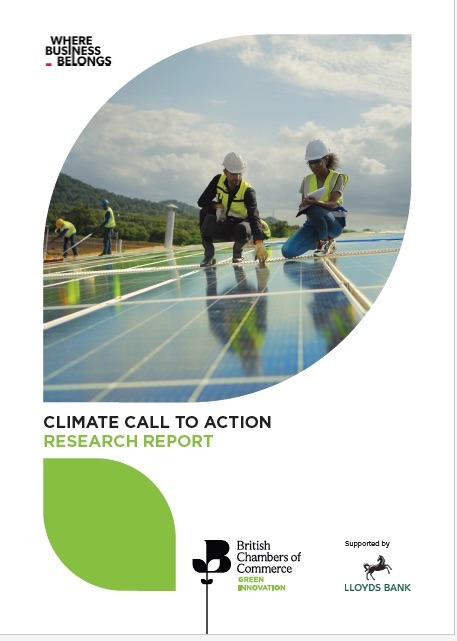New report by the British Chamber of Commerce (BCC) and Lloyds Bank finds three key changes needed to help business hit Net Zero:
- Government should review its support and advice to SMEs on moving to Net Zero
- Large businesses and institutions must continue to drive behaviour change in their supply chains
- Government should demonstrate commitment and consistency in its Net Zero plans
The recommendations are the result of a six-month deep dive by the organisations into the reasons holding firms back from reaching Net Zero. It followed an earlier BCC survey of more than 1,000 businesses, 96% SMEs, which found that nine out of 10 don’t fully understand what the Government’s target of making the UK Net Zero by 2050 means for them.

The Importance of Business Action
The number of private sector businesses in the UK at the start of 2022 was around 5.5 million. 5.47 million businesses were small (0 to 49 employees); 35,900 businesses were medium-sized (50 to 249 employees) and 7,700 businesses were large (250 or more employees).
SMEs collectively are significant users of energy and contributors to the UK’s greenhouse gas emissions (GHGs). Although SMEs account for around 99% of the total number of UK businesses, it is estimated that SMEs consume about 50% of commercial and industrial energy.
There is significant action underway across the business community on climate change. However, there are specific challenges to the successful engagement of SMEs on the Net Zero journey, given the sheer number of companies and the comparative lack of resource SMEs can dedicate to meeting environmental challenges. SMEs are a vital part of the UK’s economy, contributing 50% of the country’s Gross Value Added to GDP (worth £1.0 trillion in 2021), and supporting 52% of total employment with 18.2 million jobs.
SME’s understanding and action on Net Zero
Given the vital need for SMEs to play their part in the UK’s journey to Net Zero, the British Chambers of Commerce, in partnership with Lloyds Bank, carried out an in-depth survey of over 1,000 UK businesses, 96% of whom were SMEs, to test their understanding of Net Zero targets and where they currently are in their Net Zero journey.
In general, the survey revealed very low levels of understanding among SMEs about how the Government’s 2050 Net Zero target may impact their organisation. Only 8% said they comprehensively understood what the Net Zero target means for them, with 30% saying they know some details. Around half (49%) were aware of the target but knew no details and 14% were not even aware of the target.
The survey focused on the smaller end of the SME sector, with over 80% of respondents employing less than 50 people. Those firms with more than 50 employees were typically much further along in their Net Zero journeys, both in terms of their understanding and actions taken to become more sustainable.
These findings illustrate the need for Government (whether national or local) and the private sector to help businesses engage with and understand what the Net Zero targets mean for them.
Local Action
The East Cambridgeshire Climate Action Network is looking to partner with the Ely Cathedral Business Group and the Ely and East Cambridgeshire branch of the Cambridgeshire Chamber of Commerce and local government to stimulate and facilitate greater understanding among SME of the impact and importance of businesses hitting Net Zero.
